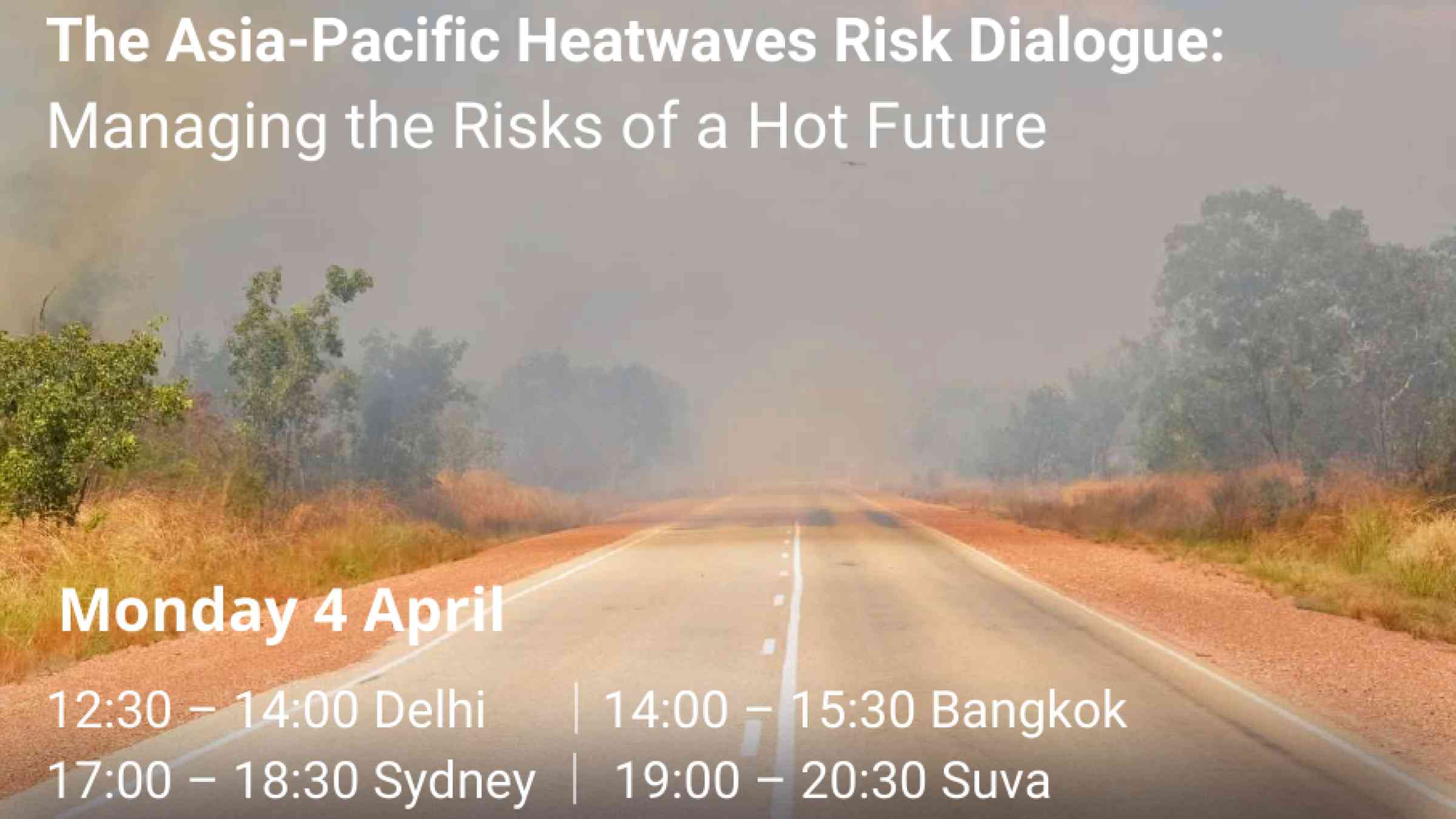The Asia-Pacific Heatwaves Risk Dialogue: Managing the Risks of a Hot Future

Date and Time
Monday 4 April 2022
12:30 - 14:00 (New Delhi) | 14:00 - 15:30 (Bangkok) | 17:00 - 18:30 (Sydney) | 19:00 - 20:30 (Suva)
Overview
The Working Group II contribution to the IPCC Sixth Assessment Report on impacts, adaptation and vulnerability has highlighted the threat of heat waves across Asia and the Pacific, as a result of the rising temperatures, as one of the most clearly observed climate change impacts which is expected to increase in coming years.
‘The Asia-Pacific Heatwaves Risk Dialogue’ will present some of the key findings and recommendations from the UNDRR report, Heatwaves: addressing a sweltering risk in the Asia Pacific.
The newly published report explores the drivers of increased extreme heat risks and its socio-economic impacts in an increasingly complex risk landscape, and identifies relevant risk management policy options aimed at reducing vulnerabilities and exposure, as well as adapting and preparing for a projected hotter future.
The webinar will present some case studies from the region to share the lessons learned, highlight the challenges and limitations of a reactive approach to heatwaves management, and illustrate the urgent need for adaptation and proactive comprehensive climate, health and disaster risk management to deal with extreme heat risks.
The panelists will elaborate on the policy recommendations identified in the report through their own experiences and examples illustrated in their case studies. Building on their learning, they will be asked to identify concrete opportunities to take forward the recommendations across the different dimensions. Their perspectives will be sought on how to reduce risk in urban areas and for vulnerable populations through innovative urban resilience and adaptation solutions; improving data quality for early warning, anticipatory action and shock-responsive social protection; and around the adoption of comprehensive health, climate and disaster risk management approaches.
The event is tailored towards practitioners and policy makers working in health, climate adaptation, disaster risk management and humanitarian action in the region who will have the opportunity to ask practical questions to the authors of the report, researchers and practitioners who have developed and implemented new approaches to adapt to, reduce, anticipate and manage the multi-faceted risks associated with extreme heat.
This includes learning from community leaders, such as Mohammad Rafi, who lived in the informal settlement of Korail, Dhaka, Bangladesh. He addressed local heat risk by using indigenous innovations to reduce the impact of heat, improving nutrition for his family within his home and neighbourhood.
Here is a short video on his solution: